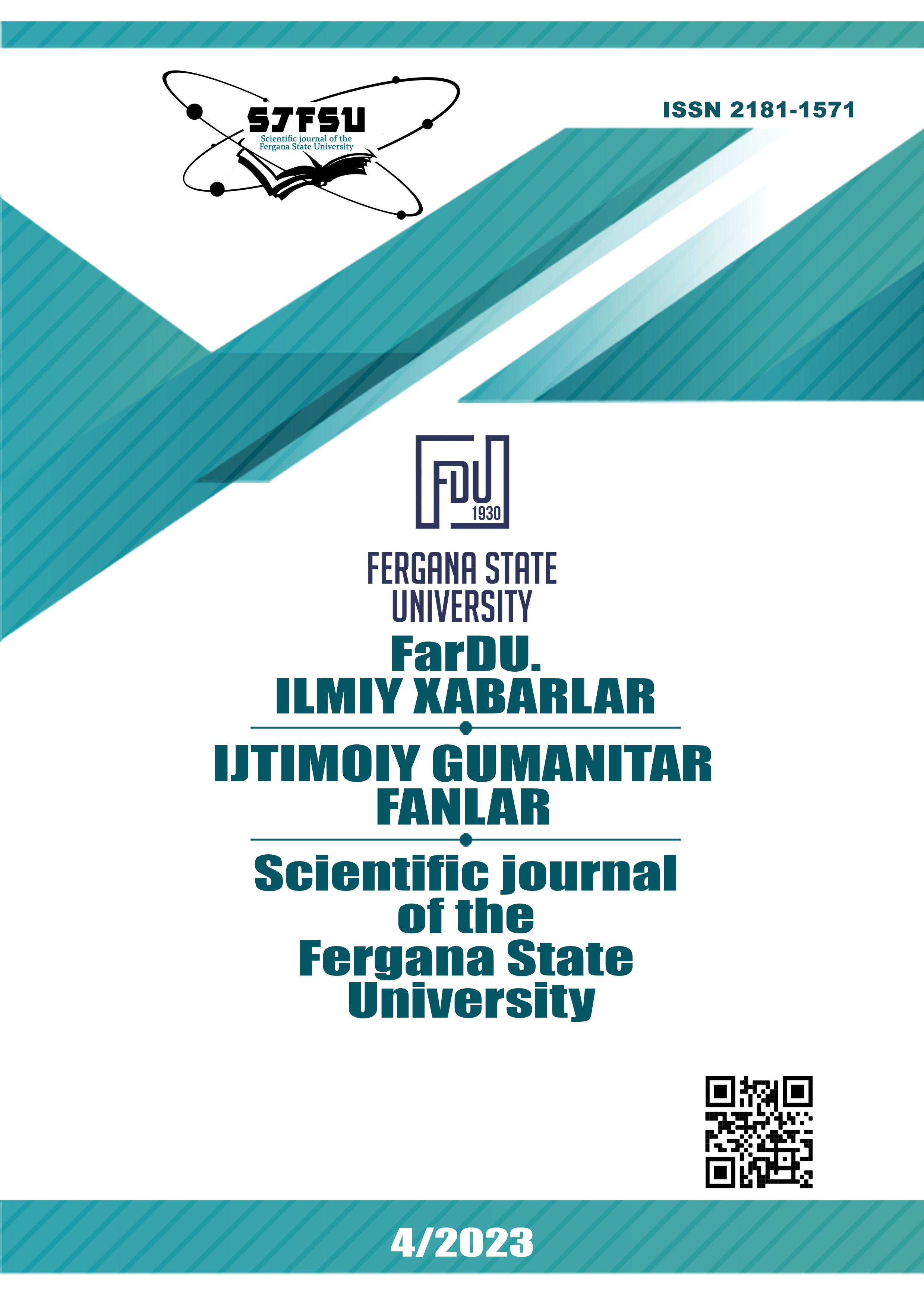COMPARATIVE CHARACTERISTICS OF LEXICAL SYSTEMS OF THE UZBEK AND RUSSIAN LANGUAGES
Keywords:
vocabulary, lexical system, lexico-semantic relations, paradigm, polysemy, typology, comparative analysis.Abstract
In the article, the lexical systems of the Uzbek and Russian languages are analyzed in a comparative aspect through the prism of a logical-linguistic approach. The author of the article notes that the vocabulary of a language is not a random set of different words chaotically mixed together, but a set of lexemes systematized on the basis of a clear order, and gives a comparative description of phonetic, lexical, morphemic and other units of the Uzbek and Russian languages as organizers of lexical systems of these languages.
When studying languages comparatively, it is advisable to first take into account their systemic nature. The article lists works on the approach to vocabulary as a system in Russian and Uzbek linguistics. When cross-analyzing related or unrelated languages, it is important to take into account the semantic system of the vocabulary of the languages being compared, in particular, lexical units. The lexical systems of the Uzbek and Russian languages differ primarily in that they belong to different language families, both genetically and typologically.
In the process of comparing the lexical fund of the Uzbek and Russian languages, the author also pays attention to words borrowed from the Russian language into our language and from the Turkic languages into Russian. Analyzes such cases as expansion of meaning, narrowing of meaning, as well as a complete change in the semantic structure of words.
Actually, when studying the vocabulary of a language, regardless of whether it is a comparative analysis or a descriptive method, the focus should be on various relationships between lexical units, in particular paradigmatic relationships. Consequently, the article examines synonymous, antonymic and homonymic relations between lexical units of the Uzbek and Russian languages in a comparative manner.
References
Азизов О., Сафаев А., Жамолхонов Ҳ. Ўзбек ва рус тилларининг қиёсий грамматикаси. – Тошкент: Ўқитувчи, 1986. – 256 б. (Azizov O., Safaex A., Jamolhonov H. Comparative grammar of Uzbek and Russian languages).
Ахманова О.С. Словарь лингвистических терминов. – М.: СЭ, 1969. – 608 с. (Akhmanova O.S. Dictionary of linguistic terms).
Виноградов В.В. Лексикология и лексикография. Избранные труды. – М.: Наука, 1977. (Vinogradov V.V. Lexicology and lexicography. Selected works).
Жеребило Т.В. Словарь лингвистических терминов. – Назрань: Пилигрим, 2010. – 486 c. (Zherebilo T.V. Dictionary of linguistic terms).
Мамажонов А., Саминов А. Сўз бирикмаси қисмларида семантик мутаносиблик ва номутаносиблик. // FarDU. Ilmiy xabarlar. 2021. № 3. 133-137 b. (Mamajonov A., Saminov A. Semantic correspondences and inconsistencies of parts of phrases).
Уфимцева А.А. Опыт изучения лексики как системы: (на материале англ. яз.) Изд. 2-е, испр. — Москва : УРСС, 2004. – 286 с. (Ufimtseva A.A. Experience in learning vocabulary as a system: (based on English material).
Щерба Л.В. Опыт общей теории лексикографии // Языковая система и речевая деятельность. — М., 1974. — С. 265-304. (Shcherba L.V. Experience in the general theory of lexicography).
Ҳожиев А. Тилшунослик терминларининг изоҳли луғати. Тошкент: ЎзМЭ Давлат илмий нашриёти, 2002. – 166 б. (Hojiev A. Dictionary of linguistic terms).
Downloads
Published
Issue
Section
License
Copyright (c) 2023 Scientific journal of the Fergana State University

This work is licensed under a Creative Commons Attribution-NonCommercial-NoDerivatives 4.0 International License.

